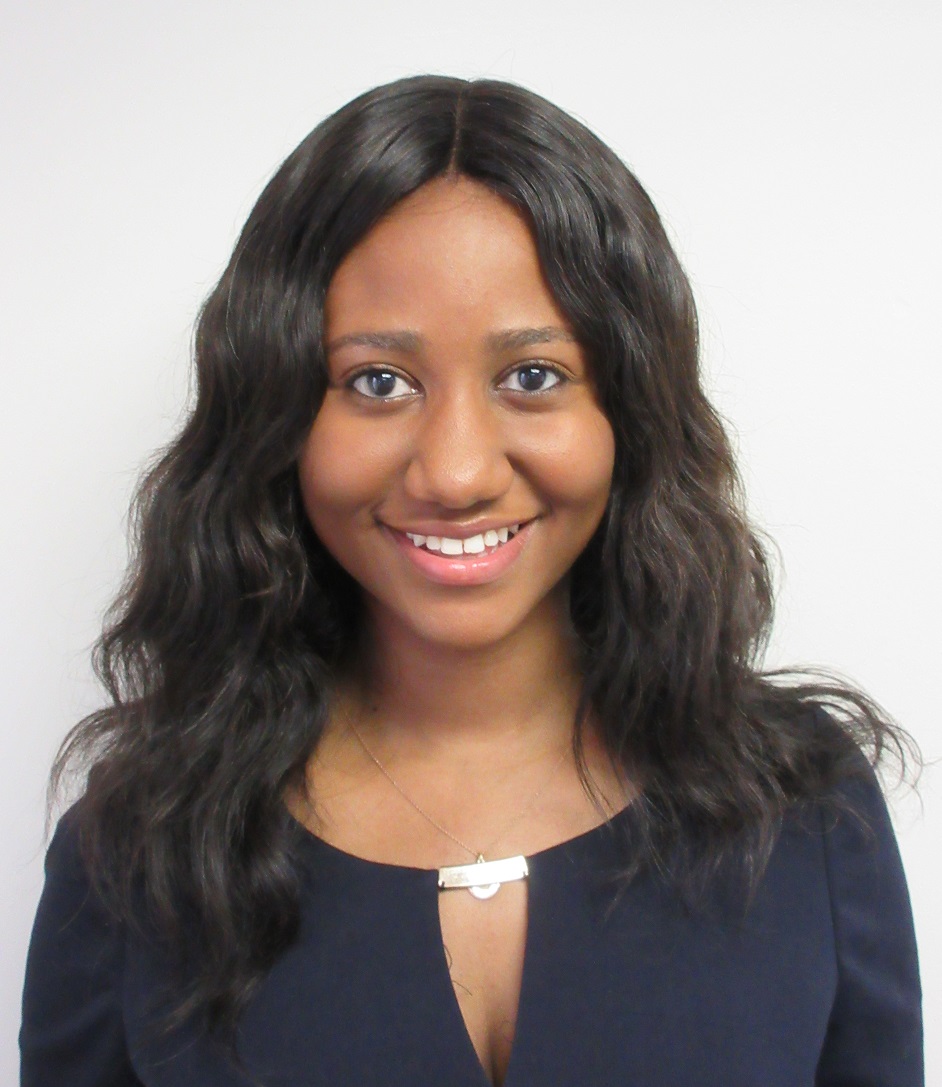Chizuru Uko is an International Business major in GW’s School of Business and a member of the first cohort of the Global Bachelor’s Program (GBP). In Spring 2017, she traveled abroad with the cohort to Shanghai, China where she and the other GBP students studied at Fudan University. After Fudan, the group dispersed for the summer, and Chizuru decided to take an internship at PwC in Lagos, Nigeria. This Fall, she returned to GW for classes on the Foggy Bottom campus. The Office of International Programs staff sat down with her to ask about her experiences in the program so far.
OIP: You started in Shanghai, China. What was living in China like?
CU: First of all, being abroad in Shanghai was very different. I conditioned myself to remain positive, and I kept my mind open. So, for the first month, I said “no complaints.” Everything was so very different, but a good thing about being in Shanghai was that there’s a big international community. So it’s easy to find people to get along with and who were also in the same position as I was, and going with the big GW cohort made it easier in general. I also got an opportunity to travel around.
OIP: Where did you go?
CU: I was in South Korea, Hong Kong, and Macau outside of China, and within China I went to Wuxi, Suzhou, Nanjing, Beijing, Quanzhou, and a couple other water towns.
OIP: With all that traveling, what classes did you take, and what were they like?
CU: I was actually able to squeeze six classes into a Tuesday to Thursday schedule because classes in China usually meet only once per week. So I took Steve’s [Dr. Steve Suranovic , GBP Academic Director] class . That was a really insightful class while in Shanghai because a lot of the class was focused on the trade deficit between the US and China. So that gave me a unique perspective. I also took a Korean business management class, a Chinese language class, a history of China class, and a marketing management class. My sixth class was a corporate finance class which I would say was really difficult.
OIP: How so?
CU: Just because the teaching style in Shanghai is different. In America, you’re more engaged with your professor—classes are more discussion style. In Shanghai, I would write down all my questions and after class I would ask my professor, “What was that concept?” or “What did you mean here?”
OIP: Even with the different teaching style, it sounds like Shanghai was an amazing experience. And from there you went on to Lagos, Nigeria to intern at PwC. How was your experience there?
CU: The first week was a lot of adjusting because of jetlag and change in culture. I think a big thing from being abroad was everything was new every day. You meet new people. You go to new places. Then all of a sudden I was forced into this work environment where I was working 8 am to 6 pm every day. At PwC, I did a two-month rotation. For the first month I worked in the Strategy division, and the second month I worked in Assurance. In the first month, I spoke to the Director, and she told me she wanted to start a project on Media, Entertainment, and Tourism in Nigeria to learn how PwC can get involved in those areas. But Nigeria has huge data issues like most developing companies. So the project forced me to network, especially with contacts outside of PwC’s network, like record companies, artists, lawyers, and producers. It gave me a different perspective than just sitting behind the desk working with Excel files.
I thought that during an internship I would go get coffee or do little tasks. I learned that the key to doing an internship was being proactive and constantly asking for work.
OIP: What would you recommend to students planning to take part in the GBP or other Study Abroad programs?
CU: A big thing is planning ahead. You always have to think about your next step. Also be open to changes. And take advantage of your networks, that’s how I got my internship—through a contact I met at a conference. As for an international internship in a developing country, certain industries are developing in Nigeria and offer more experience. I would say students should focus on international companies in these countries. You would have to be very resilient to do an international internship in a place like Nigeria. But in a developing country, you are often doing projects for the first time which is unique to these types of opportunities. For instance, PwC had never done a project on Media, Entertainment, and Tourism before, and the director said that created an open invitation for me to return to work there.
OIP: Would you be able to say something about the program regarding what it affords you?
CU: The program has really defined my major for me. The experience of studying abroad three times while taking classes has given me a new perspective on the world. This goes from the people I’ve met to the classes I’ve taken to the experience in general. It definitely forces you to step out of your comfort zone and makes you think of the world as a smaller place. Being with people from so many places for so long has shown me how similar we are.
Most International Business majors end up working for business firms in America, but the program has given me other options. I would ideally like to work in South Korea, just from being abroad and having the opportunity to travel, and that’s something that wouldn’t have happened if I hadn’t gone abroad.


